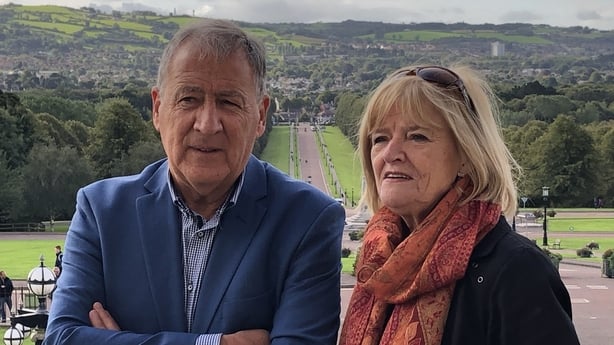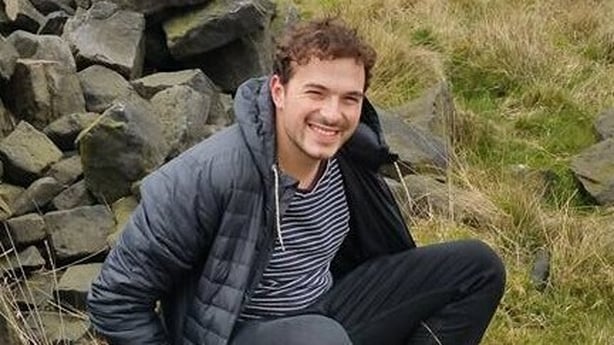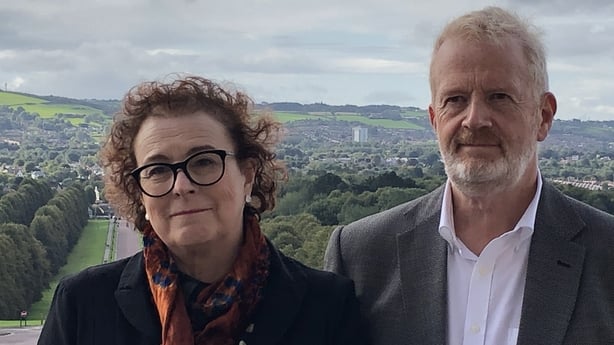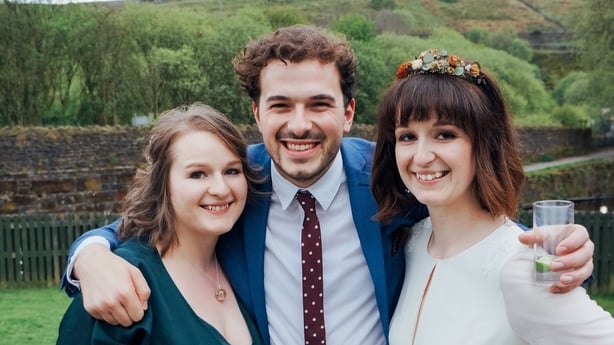The parents of Lewis Keogh only found out about his gambling addiction in his suicide note after he died by suicide in 2013.
The 34-year-old from Enniskillen in Co Fermanagh had been living and working in Leeds, and his family and close friends had no idea about his problem.
Peter and Sadie Keogh are telling their story to raise awareness of gambling addiction as a pilot education programme in schools is launched today by charity Gambling With Lives.

The charity was set up by families bereaved by gambling-related suicides.
"Unfortunately, we only found out in his suicide note. He left a note telling us that he needed some peace, addiction is cruel, and he outlined it," explained his father Peter.
"We really didn't have a clue that he was a gambling addict. The same was true for his close friends in Leeds, people he'd played football with and gone on holiday with. They knew he placed the odd football bet but had no idea that he was an addict. They were just completely shocked."
After his death, his parents began examining his past in an attempt to discover the root of his addition.
They believe it can be traced to Lewis playing slot machines while he waited to get a bus home from school when aged 13 or 14.
The extent of his gambling when he died came as a huge shock.
"After his death, we investigated his bank accounts and we were absolutely horrified by the extent of his gambling. It was every day or almost every day, and a lot of money," said his mother Sadie.
Following her son's death, Sadie went online to research addiction in an effort to understand the problem, but that had unwelcome consequences, with gambling companies sending her alerts inviting her to bet.
"I'd get emails every day offering incentives, anything from £50 for a free bet up to one day £1,500. So, even if Lewis has been looking for help with his addiction, as soon as he looked up gambling addiction he would have been offered incentives to gamble. It's just ridiculous."
The couple hope the campaign launched today will help educate young people about the risks of gambling and avoid other parents suffering the same loss.
They also hope the programme being piloted in schools Northern Ireland and Britain will be introduced in the Republic of Ireland.
"It’s my hope and Sadie's hope that we'll take this south of the border," said Peter.
"Gambling doesn't stop at Belturbet or any of the border towns, you know. It's all over Ireland, it's one small island and we feel that this programme should be available everywhere."
We need your consent to load this rte-player contentWe use rte-player to manage extra content that can set cookies on your device and collect data about your activity. Please review their details and accept them to load the content.Manage Preferences
'He felt he would never be free'
Liz and Charles Ritchie knew their son Jack had started gambling while at school when he told them about losing money his grandmother had given him.
They worked hard to stop him gambling and believed he had overcome it, but never understood the depth of his addiction.

The 24-year-old from Sheffield died by suicide while working as an English teacher in Hanoi in Vietnam in 2017.
His parents say he had been free from gambling for 18 months before going to Asia.
"I think he thought, and we thought, that he had beaten the addiction, but he hadn't, and I think that’s the nature of the addiction," said his father Charles.
"It came back, and it wasn’t about losing large amounts of money. It was him thinking that he could never be free from this. Here he was, he had travelled continents away from where he’d been gambling, thought he'd escaped it, but he was dragged back in."

His mother said Jack returned to gambling on British company websites, and she thinks he may have responded to a promotional email offering an incentive to place a bet.
"The hand of the deregulated gambling industry in Britain reached out across the world to drag him back in," said Liz.
"He hadn't lost much money, that's the point really. He was the definition of what the industry call a responsible gambler. He was free for months and months and months, and for a year at a time, but he was dragged back in.

"Everybody thinks that the deaths and suicides are caused by debt. They're not. They're caused by mental health problems that gambling causes, these very, very addictive forms of gambling. They actually affect the brain and they harm your cognitive capacity.
"It was very clear from his suicide note that he felt he would never be free, and he felt that he needed peace."
She said the motivation for setting up the charity Gambling with Lives and launching the education programme was to make young people and their parents aware of the risks and the highly addictive nature of many gambling products, and in a bid to prevent others suffering the same problem and loss.
"That is why we set up Gambling with Lives. It's to warn other parents, because nobody warned us," she said.







